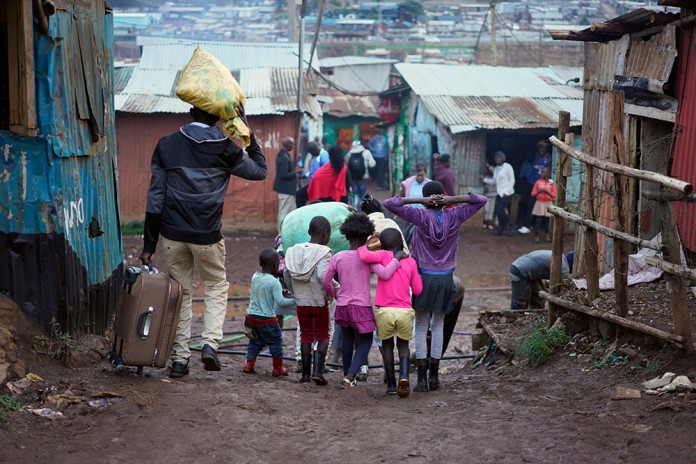Children living in informal settlements (slums) are at a higher risk of developing lung diseases compared to those living in formal settlements.
A study by the Kenya Medical Research Institute (KEMRI) in collaboration with universities in the UK led by Liverpool School of Tropical Medicine (LSTM) has revealed.
The study christened ‘Tupumue‘ shines a light on the threat posed by pollution to children’s lungs.
Prof. Graham Devereux who led the study on behalf of LSTM said that this was the first study to show that the 350-500 million children living in informal (slum) settlements around the world are at increased risk of developing asthma.
“This is more severe and is associated with sources of indoor and outdoor air pollution. Also, those children are less likely to be diagnosed with and treated for asthma,” said Prof. Devereux.
The study team recruited more than 2,400 children aged 5-18 from schools in two closes but very different communities in Nairobi, Kenya – one an informal settlement and the other a formal gated community.
The team used scientific measures including questionnaires, lung function, and air pollution tests to quantify the children’s health, well-being, and local air quality.
“The success of the Tupumue study, even through the COVID-19 pandemic, was a result of the study acceptability and ownership by all stakeholders, the multidisciplinary approach, and a highly tenacious field team,” Dr. Hellen Meme who led the study from KEMRI said.
KEMRI Director General Prof. Elijah Songok said policymakers should use the study to find ways to reduce air pollution for the health of the children.
“KEMRI is proud to have participated in this collaborative landmark study which shows the link between air quality and children’s lung health in informal settlements. These results are highly encouraging and we hope it will further persuade policymakers to improve children’s healthcare and reduce air pollution in order to scale down cases of asthma,” said Prof. Songok.
A sentiment that was supported by Prof. Graham Devereux from LSTM who said they hope Tupumue will help provide informal settlements with the information they need to persuade policymakers to improve the care of children with lung disease and to reduce air pollution exposures.
The team also that the data contributes to identifying further areas of research and helps to target interventions that can greatly improve the lives of those in the local community.
“Even as enactment and enforcement of laws to reduce outdoor and indoor air pollution that our study showed have an association with symptoms of asthma in children is ongoing, in the short term, residents of informal settlements could be assisted to address some of the contributors to indoor air pollution that were found to be associated with symptoms of asthma such as the burning of mosquito coils through provision and use of affordable alternatives such as insecticide-treated mosquito nets,” said Dr. Meme.













